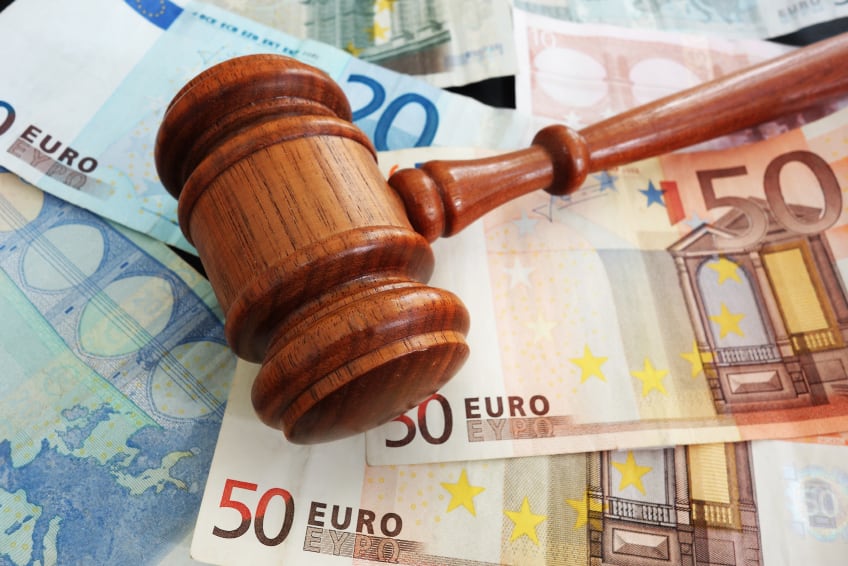On Thursday 6th July, Japanese prime minister Shinzō Abe, European Commission president Jean-Claude Juncker and President of the European Council Donald Tusk signed a political agreement, establishing the main elements of the EU-Japan Free Trade Agreement (FTA).
Although some technical details have yet to be decide, the deal will see EU exports of ingredients such as malt, potato starch, skimmed milk powder, butter and whey benefit from significant quotas, either duty-free or reduced-duty.
It will also scrap customs duties for processed food products such as pasta, chocolates, cocoa powder, candies, confectionery, biscuits, starch derivatives, prepared tomatoes and tomato sauce.
Today, Japan is the EU's fourth biggest market for agricultural (food and drink) exports, with an annual value of over €5.7 billion.
When the deal goes through, around 85% of EU agri-food products (in tariff lines) will be allowed to enter Japan entirely duty-free.
The high export duties of 29.8% on many hard cheeses, such as Gouda and Cheddar, will be removed while a duty-free quota will be set for fresh cheeses such as Mozzarella.
Tariffs on wine exports (currently 15%) will be eliminated, making an already attractive export market even more so for European winemakers. Wine exports from member states to Japan are worth around €1 billion, making it the EU's second biggest agricultural export to Japan by value.
The EU-Japan deal will allow EU member states to increase beef exports to Japan substantially while allowing duty-free trade in processed pork products and almost duty-free trade for fresh pork meat.
Under the agreement, Japan will recognise more than 200 European Geographical Indications for food and drink products.
Roquefort, Aceto Balsamico di Modena, Prosecco, Jambon d'Ardenne, Tiroler Speck, Polska Wódka, Queso Manchego, Lübecker Marzipan and Irish Whiskey are just some of the products that stand to benefit from the same protection in Japan as in Europe.
The deal will also see import quotas and all tariffs on fishery products scrapped. “[This] means better prices for EU consumers and big export opportunities for EU industry,” said a statement issued by the European Commission.
Reactions
The deal was widely embraced by Europe’s food industry players. Director General of FoodDrinkEurope, the association that represents the interests of European food manufacturers, Mella Frewen, said such trade deals were “a catalyst for jobs and growth”.
“European food and drink manufacturers and the wider agri-food chain stand to gain from an ambitious agreement with Japan,” she said. “The agreement will help to

level the playing field with other competitors and countries that already have preferential arrangements with Japan.”
Secretary-general of Copa and Cogeca, Pekka Pesonen, said it saw opportunities for the European meat, dairy and wine products sectors from opening the Japanese market. “I hope that the agreement wrapped up […] will deliver a better income for the farmers,” he added.
Head of the European Dairy Association (EDA), Alexander Anton, also welcomed the agreement, saying it was “a good sign for Europe, for Japan and for the global trade […] especially since the Trans-Pacific Partnership has failed to be implemented for the time being.”
No investment protection system
Monique Goyens, director-general of pan-European consumer rights organisation BEUC, said she was pleased to see no reference to the controversial investment protection system (ICS).

The EU has put its reformed Investment Court System on the table for now, and a statement issued by the Commission said it will now reach out to all its partners, including Japan, to work towards the setting up of a Multilateral Investment Court.
Goyens added: “For a definitive answer on whether consumers can support this deal, we however need to see the texts during the next phase. And this requires transparency not just from European negotiators, but from the Japanese side also.
"As they settle the details, we do think the European Commission can up the ante in terms of consumer benefit. Its website answers the question “How will European consumers benefit?” with “The agreement should see Japanese products in the shops become cheaper”. Is this really the extent of what an ambitious 21st century trade deal can fashion for consumers?”
Both parties will now try to resolve all outstanding technical details, before submitting the final text to member states and the European Parliament for approval. For the EU-Canada deal (CETA) this process took five years.
